
Playwright and actor

Novelist

Writer and poet

Volleyball player

Italian-Peruvian naturalist and geographer

Singer and percussionist

Last Inca emperor

Politician, former prime Minister

Journalist and TV host
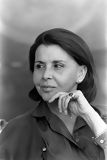
Poet

Inca warrior

Actor and comedian

Biophysicist

Poet

Doctor and researcher

Businessman, Interbank group

Journalist and writer
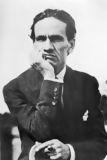
Poet and writer

Singer and songwriter
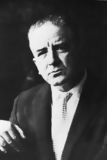
Writer

Film director, Berlin Golden Bear winner

Football player

Writer and journalist
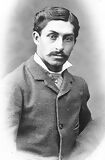
Doctor and scientist

Photograph

Chess player

Industrialist

Former general

Specialist in public health

Actress and singer

Afro-Peruvian music singer

Mathematician and engineer

Indigenous chronicler

Neurologist and anthropologist

Painter

Football player

National hero, military leader

Intellectual and reformer

Chef and entrepreneur

Fashion designer

Singer-songwriter

TV presenter

Marathon runner

Indigenous Peruvian chronicler

Theologian

Former national team captain

Economist and former health minister

Inca princess

Writer and television host

Folk musician

Poet and guerrilla
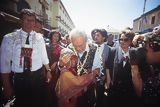
Former UN secretary-general

Chef, known for fusion cuisine

Football player

Peruvian aviation pioneer

Poet and artist
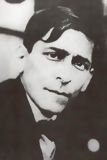
Marxist philosopher and writer

Industrialist and businessman

Novelist and ethnologist

Painter and muralist

Opera tenor

Fashion designer

Cardinal of Lima

Peruvian tennis player

Football coach

Leader of the indigenous rebellion

Military hero
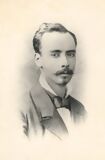
War of the Pacific hero

The youngest mother in history

Politician

Creole music singer

Tennis player

Musician

Writer and politician

Politician and founder of the Christian Democratic Party

Founder of Sodalitium Christianae Vitae

Archaeologist and anthropologist

Military leader and politician

Television host

Actress and singer

Contemporary sculptor

Women’s rights activist

Beauty queen

Astrophysicist

Heroine of independence

Mathematician and archaeologist

Historian and anthropologist

Military figure and historical figure

Fashion photographer

Writer, Nobel Prize in Literature, Politician

Revolutionary leader

Environmental activist

Leader of the indigenous rebellion

Musician from Gaia band
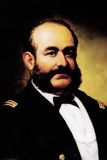
War hero
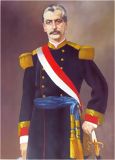
Military leader and politician

Chef, known for Nikkei cuisine

Volleyball coach and former player

Environmental activist

Television personality

Writer

Football player

Epidemiologist and former health Minister

Inventor and aerospace pioneer

Soldier and inventor

Rock singer

Chef and co-owner of Central restaurant

Painter

Football player

TV presenter and actress

Actor
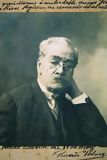
Writer and historian

Journalist and lawyer

Archaeologist, founder of Caral site
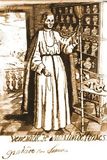
Monk and Saint
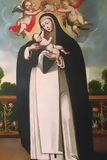
Saint, patron of Latin America

Physicist and engineer

World champion surfer

Actress

Oncologist

Singer, Latin Grammy winner

Former mayor of Lima

Singer

Actress

Former football player

Painter
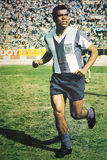
Former football player

Painter

Inca leader

Archbishop, saint

Leader of the indigenous rebellion

Revolutionary indigenous leader

Diplomat and intellectual

Sculptor and painter

Political leader, founder of APRA

Lawyer and Former prime minister

Chef of Central restaurant

Former head of secret services

Popular singer

Fashion designer

Exotic music singer
Saint Rose of Lima, born Isabel Flores de Oliva on April 20, 1586, in Lima, Peru, was the first person born in the Americas to be canonized by the Catholic Church. Known for her deep piety, acts of charity, and devotion to the suffering of Christ, she is a key figure in Latin American Catholicism. Saint Rose of Lima became the patron saint of Peru, the Americas, and the Philippines, honored for her commitment to helping the poor and leading a life of sacrifice.
Isabel Flores de Oliva, nicknamed "Rose" for her beauty, was born into a modest but deeply religious family. From a young age, she exhibited signs of religious devotion and aspired to live a life of prayer and penance. She spent many hours in prayer, often in the garden of her home, where she built a small hermitage to retreat from the world. At the age of 20, she took the name Rose and vowed chastity, refusing marriage despite pressure from her family.
Saint Rose of Lima is known for leading a life of extreme mortification and self-denial, inflicting suffering upon herself to unite with the passion of Christ. She wore a crown of thorns under her garments to imitate Christ and slept very little, spending most nights in prayer. Her austere life, although controversial at the time, was seen as a form of holiness by those around her. She sought to distance herself from material comforts and dedicate herself entirely to prayer and charity.
In addition to her personal devotion, Saint Rose of Lima was distinguished by her commitment to the poor and sick. She used her family’s garden to grow plants and prepare herbal remedies, which she distributed freely to those in need. Despite her own poverty, she shared everything she had and spent much of her time caring for the sick and marginalized in Lima. Her selflessness and dedication to helping the less fortunate made her a respected figure in her community.
Saint Rose of Lima was also associated with mystical experiences, having visions of Christ, the Virgin Mary, and angels. She believed she had been chosen to share in Christ's sufferings, which reinforced her practice of physical mortification. Her visions and profound spiritual experiences led her to be perceived as a mystic, which further contributed to her reputation for holiness.
Rose of Lima died on August 24, 1617, at the age of 31, after a life of religious dedication. Her death caused great mourning in Lima, where she was already venerated as a saint. In 1671, she was canonized by Pope Clement X, becoming the first saint of the Americas. Her canonization marked a significant milestone in the religious history of Latin America, and today she is honored as the patron saint of Peru and the Philippines, as well as gardeners and florists.
Saint Rose of Lima remains a model of faith and devotion for millions of Catholics across Latin America. Her feast day, celebrated on August 23, is a major religious occasion in Peru, where annual processions and celebrations are held in her honor. As the first saint of the continent, she symbolizes the depth of Catholic faith in Latin America and its role in shaping the region’s religious identity.
The legacy of Saint Rose of Lima lies in her commitment to living a life of holiness through prayer, penance, and service to others. Though her life was marked by extreme acts of mortification and renunciation, she is also admired for her love of the poor and her desire to help those who suffered. Today, she remains a symbol of selflessness and devotion to Christian faith, inspiring those who seek to lead a life of service and deep spirituality.